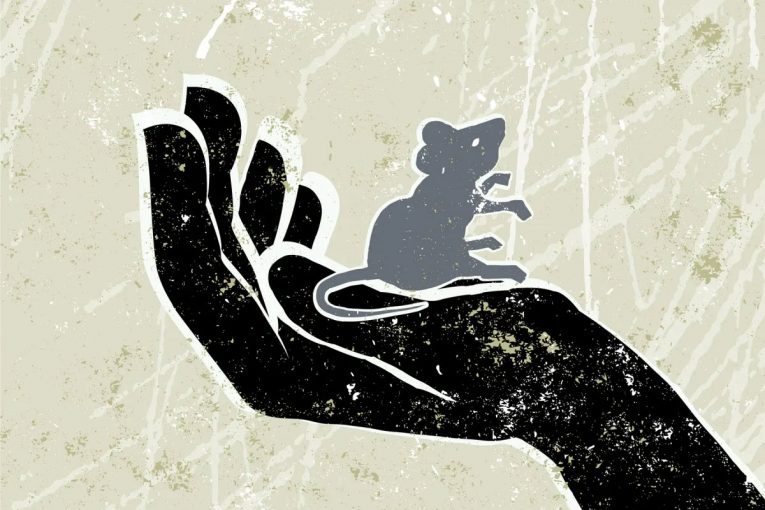

I thought about compassionately ending a mouse’s life. Then I realized I didn’t want that decision on my conscience.
by Jeffrey McKee
There was a recent rodent infestation at my prison. Mice had chewed through the insulation of the freezer and ovens and pooped on the food. Needless to say, several of us complained.
“You should be more concerned that the mice aren’t eating the food,” joked Derek, a fellow resident.
In response to the infestation, the prison shut down the yard for a few days and sprayed pesticides. Once the yard reopened, we wanted to get sun and fresh air.
As a group of us approached the baseball field, we saw Mike kneeling over a mouse, gently stroking its fur. The mouse was slowly dying from the pesticides.
We talked about the rodent problem and how bad the food was even before the mouse poop. Then Derek said aloud what we were all thinking.
“Well? Should we kill it and put it out of its misery?”
“Maybe,’” I replied. “But who’s going to do it?”
After a few minutes of reflection, we all silently walked away from the mouse.
The area of the prison I live in houses several prisoners who spent years on death row until their sentences were converted to life without parole. That occurred after a Washington State Supreme Court ruling found the death penalty to be unconstitutional due to racial disparities.
The majority of the others owed their sentence to the controversial “three strikes” law, under which three separate serious felonies can land you life without parole. I may be able to parole if I can convince the parole board that I am fit for release. Otherwise, I too will die in prison.
After watching the rodent struggle to survive, I wondered: Was it more humane to end the mouse’s life, when there was no doubt that the mouse would eventually die? Or was it better to allow the mouse those few moments of life, even if they were spent suffering?
Whichever position we took on the subject, none of us wanted the final decision on our conscience.
Originally Published by Prison Journalism Project. Jeffrey McKee is a writer incarcerated in Washington.





